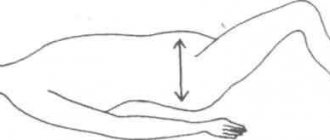"Exsistentia" means "existence" in Latin. The existential direction in psychology involves resolving conflicts associated with requests relating to freedom of choice, will, loneliness, human death, and responsibility for building the scenario of one’s own life. In Western and Russian culture of the twentieth century, philosophers and cultural figures turned to the inner experience of a person who realized his total loneliness, mortality and, in parallel with this, the loss of the meaning of existence. But it was not they who opened this page in the history of culture. “Socrates... posed the problem of life and tried to transfer it into the realm of self-knowledge.... He wanted to correct his life with the power of spirit, realizing the conflict of the principle of freedom of personality and existence” [1]. People thought about the strength of the human spirit already at the dawn of civilization, but the 20th century aggravated these issues with an unprecedented number of wars, genocide, and monstrous experiments on people.
The existential direction in philosophy and culture began to develop especially intensively in the interval between the world wars. It has not lost its relevance now, in the 21st century, with the threat of the Third World War. The search for meaning and self-discovery, a sense of personal strength and responsibility - these are pressing issues that concern clients of all ages: rebellious teenagers and pensioners, men and women experiencing a mid-life crisis, students disappointed by their own idealistic ideas about their chosen profession, and many others. The client’s existential request is a kind of challenge to the therapist, an invitation to delve into his inner world in order to gain resources. And there is no universal fail-safe technique or standard set of exercises here. This is a lively and intense search. This is precisely the principle that I. Yalom proclaimed in the book “Mom and the Meaning of Life,” believing that ideally a unique language and an individual method of therapy should be invented for each client, because everyone understands ideological meanings deeply individually.
Existential questions in psychological science
A milestone in psychology was the approach developed by V. Frankl, the creator of logotherapy. His scientific works are widely known, including after the concentration camp experience, interpreted by the psychologist as an extreme and cruel condition for the creation of new vital meanings (one of them was the presence of loved ones and relatives for whom it was worth surviving). “Existential analysis will have to help a person become capable of suffering” [2]. It’s not just about suffering, but also about accepting this state, when the principle “it hurts, it means it’s bad” is replaced by “it hurts, it means it makes sense.” Let us add that suffering should change a person, contribute to his spiritual growth - this process is the basic meaning. And if a person in a concentration camp does not see him and continues to be horrified by inhumanity, loses heart, he is actually doomed (it is interesting that A. Solzhenitsyn also argued: the first to die in Soviet camps were those who despaired, and the believers were the most resilient - that is, those who found their meaning in the idea of God). “He who knows the “why” can cope with any “how” [4],” believed I. Yalom, another representative of the existential trend in psychology. Only meaning gives strength to live. In other words, the concentration should not be on the process of suffering, but on the questions: Why is this happening to me? What does this situation give me? Why should I survive? This is the only way to expand consciousness. “Meaning is, apparently, something that we project into things around us, which in themselves are neutral” [3], - believed V. Frankl.
The existential approach in psychology was significantly developed and deepened by Irvin Yalom, working with people doomed to death, including cancer patients. In his approach, an indispensable condition is the attitude towards a person’s acceptance of his own mortality, especially when death is near. In the book “Looking into the Sun. Life without fear of death,” the psychotherapist comes to a paradoxical but reasonable conclusion: it is the idea of the finitude of life that prompts a person to be active. Yalom understands existential therapy as productive “interaction and reflection on this interaction,” which leads to transformations in human behavior. In his practice, efforts were first aimed at patients accepting existential anxiety about loneliness, death, disability, lost years, at understanding how this is experienced “here and now” by the client and the therapist himself, and this process in most cases led to powerful spiritual transformations, to understanding new aspects of experience.
Definition and main ideas of existential psychology
Existential psychology is based on a philosophical approach and is the process of finding value and meaning in life. It is based on the idea that a person is not a victim of circumstances, but is responsible for his own actions and choices, thereby shaping reality.
Existential psychology takes a positive approach that celebrates human aspirations and abilities while recognizing human limitations. This branch of psychology helps people come to terms with the basic principles of human existence, the so-called givens. There are 4 main existential givens:
- Freedom and the responsibility associated with it. Everyone has freedom of choice. Every decision has consequences, no matter how big or small. To grow, a person must take responsibility, i.e. become the author of your own choices, actions and life. However, many people strive for freedom while trying to avoid responsibility.
- Death. Death is one of the absolute truths of life. Everyone will die at one time or another.
- Loneliness. On the one hand, a person is a social being who desires constant contact with others, on the other hand, he is absolutely alone, because he cannot count on 100% understanding and acceptance of his individual experience by other people.
- Pointlessness. There is no meaning to life. This means that there is no predetermined value. The meaning of life is different for everyone, and each person must find that meaning through their own choices and actions.
The struggle with any of these givens causes intrapersonal conflict and fills a person with fear or existential anxiety. For example, for most people the fact of their own death or the death of relatives is a source of deep anxiety; they persistently ignore reality and refuse to accept the fact that death will occur. There are also those who, to the point of neurosis or psychosis, are fixated on the inevitability of death.
Existential psychology offers a solution: to accept the inevitability of death, being free from its pressure. People who maintain a healthy balance are motivated to make decisions that positively impact their ongoing lives. The reality of death encourages us to make the most of opportunities and appreciate what we already have.
Living an authentic (genuine) life, realizing one’s unique properties and potential is the main call of existential psychology. This can only be achieved by taking responsibility for your own actions and idleness, realizing that inaction is also a decision.
Existential psychology reminds us of the limited time, stimulates us to look for the meaning of life and act in such a way that fate is in the hands of a person. She accepts the inevitability of “normal” anxiety, considering it part of growing up and an adequate reaction to what is happening.
Principles of existential therapy
According to this approach, within a person there is a clash between his attitudes and the implementation of his way of being. When faced with the inevitability and reality of one's own death, making life-changing choices, losing loved ones, or experiencing extreme events, a person inevitably breaks out of the ordinary and is faced with all the complexity and depth of life. As you know, there are no atheists in the trenches, and similarly, in extreme situations, all people are philosophers to one degree or another. And then, in order to maintain a more or less balanced state, psychological defenses come into play. But their downside is that, while protecting, they simultaneously block the flow of vital energy and contribute to the creation of illusions, which are sometimes vaguely felt as false, but always negatively affect the quality of inner life. “What is required of the patient is that he wants to realize that (in case of a phobia) or, accordingly, he himself realizes that (in case of obsessive-compulsive neurosis) that he is so afraid of [3], V. Frankl believed. The meaning of suffering is in future personality changes. Here the principle of a pearl in a shell comes into play: just as sand that gets into it and causes pain to a mollusk becomes a pearl, so a person’s suffering, experienced to the fullest, with permission to come true, gives the event meaning, changing a person’s priorities and attitudes, contributing to the emergence of its new qualities - and therefore the fullness of being. Because in every event lies the potential for spiritual growth. “People who are deprived of tension tend to create it, and this can take either healthy or unhealthy forms,” Frankl said, noting the intuitive desire of any person to be in some kind of movement, to overcome obstacles and to feel their strength, boundaries, potentials.
What did religion “bind”
The death of God is, of course, not about a bearded old man in heaven or about atheism. We are talking here about morality, and in a broader sense, about religion. According to one version, the word “religion” comes from the Latin religare - “to bind”: the presence of religion makes the world connected, and not a set of random events. Erich Fromm, a philosopher, neo-Freudian, post-Marxist, suggested using the phrase “system of orientation and worship” instead of the word “religion.” In simpler terms, this can be called a “value system.” If you strip away the obvious superficial idea that morality is Big Daddy scolding, the “orientation and worship system” not only tells you where to bow, but also creates meaning.
Meaning is a derivative of values. A person prefers to do one thing and not do another because for him one is more valuable than the other. Without a guidance system, the world becomes completely frightening and unpredictable: it is unclear where to go (and what you will be punished for).
This can be expressed in different words (for example, “right” or “wrong”, “good” and “evil”), but the essence remains the same: a person moves towards things that are preferable to him. That's the point.
The definition of “system of orientation and worship” ties into one not only religion, but also similar systems that perform the same functions. For example, one of the excellent substitutes for religion is ideology, a relatively new invention from the time of Karl Marx, which has flourished only since the 20th century. They didn’t even really disguise themselves: some took the solar symbol (swastika), others took Egyptian ziggurats, mummification, the cult of the dead and post-mortem in the memory of descendants (“Lenin is forever alive in our hearts”).
Therapy for fear of death
This basic fear is inherent in any biological creature - at least at the level of instincts. In existential therapy, it all begins with his recognition and acceptance of the inevitability of the fact of his death.
In this sense, it is effective to draw a line of life and determine your current segment at the moment, a detailed representation of your death with the creation of an obituary or inscription on the grave (sometimes these inscriptions can be made deliberately paradoxical).
Group therapy consisting of healthy and sick people or in groups of a homogeneous type (for example, cancer patients, as described by I. Yalom) has its effect.
An important conclusion from the research of I. Yalom, who interviewed dozens of people doomed to death, was the understanding that those who actively, variedly, and lived their lives to the fullest are less afraid of death. People who have allowed themselves little, who have denied themselves the fulfillment of their big and small desires, are more afraid of death - in fact, the fear of death means regret about an unlived life. Therefore, an important point in therapy will be the awareness of what right now gives a person the strength to live, causes him sincere joy - and building his life so that there is always a place for this.
A technique associated with reducing susceptibility to death (desensitization) has proven itself well - frequent speaking, imagining, rehearsing one’s own death.
Methods, techniques, techniques
It is impossible to clearly name the methods of existential psychotherapy, since for each new client the specialist “invents” a special approach to treatment. Therefore, in her arsenal there is a wide selection of techniques and techniques with the help of which a person is brought to light from the dark depths of his own consciousness. As a rule, they are borrowed from other areas:
- manifestation of creative potential through art therapy techniques (depending on the client’s abilities);
- transference and countertransference from Gestalt therapy (work in a team of a client and an existential psychotherapist);
- journaling, distancing, empirical experiments, reappraisal, decentering, decatastrophizing, targeted repetition, procrastination - methods of cognitive therapy;
- role-playing training aimed at acting out and understanding a problem situation from within - from behavioral psychotherapy;
- question-and-answer technique, conversation, pronunciation - the basis of a positive direction;
- bioenergetic psychoanalysis, biodynamics, insight therapy are borrowed from body-oriented psychotherapy.
This is not the entire list of methods and techniques. Despite the fact that 90% of the tools are borrowed from other directions, the arsenal also has its own techniques that allow you to work with the basic concepts of existentialism.
Techniques for working with death awareness:
- “permission to endure” - open discussion of topics about death;
- defense mechanisms - correction of naive views on death;
- dream analysis;
- constant but correct reminders of the fragility of existence;
- deepening awareness of the inevitability of death through auxiliary techniques (writing your own obituary, detailed presentation of your funeral);
- decreased sensitivity to the fear of death, which is given in doses at sessions;
- semantic revaluation of death, search for positive aspects in it.
Techniques for working with personal freedom of choice and responsibility for it:
- admitting one's own guilt;
- awareness of shirking responsibility;
- overcoming boundaries and prohibitions;
- working with conscience, feelings of guilt for making the wrong choice;
- releasing one's own desires;
- decision-making facilitation: every action is preceded by a choice.
Techniques for working with insulation:
- an independently made decision to completely isolate yourself from communication for a while;
- overcoming the contradiction between the need for communication and existential isolation;
- learning the “language of intimacy” - developing automatic skills for expressing feelings;
- establishing a trusting relationship between client and psychotherapist.
Techniques for working with the lack of meaning of being:
- redefining the problem of meaninglessness;
- overcoming anxiety;
- involvement in life;
- establishing and maintaining authentic relationships.
Depending on the identified problem, the psychotherapist may choose a specific block of techniques, or may sequentially include individual moments from them in sessions.
Dealing with Loneliness
Paradoxically, to cope with loneliness, you need to go deeper into it. As psychologists say, you cannot stop being lonely without the possibility of solitude.
In his work, the therapist will definitely focus on the client’s idea of a partnership that excludes manifestations of dependence and manipulation (if this idea is very approximate, they work on it). As a rule, the client often has a distorted image of a partnership or being in a couple; pathologies often manifest themselves in the form of an aggressive desire to possess a partner, to tell him what to do correctly, to manipulate, or, conversely, the mechanism of “sacrifice”, codependency, etc. is activated.
An important role in the work is played by the “here and now” attitude - in relationships with the therapist, the reasons for loneliness or difficulties in interpersonal interaction always appear. It will be a valuable experience for the client to receive “feedback” from the therapist.
Awakening a sense of responsibility for your decisions
When this problem arises, it will be effective to identify ways of refusing responsibility (using confrontation interviews, paradoxical statements, etc.). Therapy aimed at awakening responsibility, like all existential therapy, excludes the directive style - because in this case there is a great danger of transferring responsibility to the therapist - another trick of the client. Therapy methods should be aimed at strengthening volitional qualities (or awakening them); it is important to take into account personal potential, build goals and desires in order to then translate them into reality, thinking about how this can be done. If there are “no” desires, there is work to be done to find oneself, to feel the client’s taste for life.
Loss of meaning in life
Such problems often arise in adolescence - or later, at turning points. Here it is important to stimulate the client’s self-expression, to shift the angle of perception from a focus on internal processes to the outside in order to gain meaning (sometimes a narrowed perception drives a person into a dead end). This is facilitated by visits to orphanages, hospices, volunteer work, and any appeal to someone else’s, even more dramatic, experience. Often a person who feels abandoned and lonely, useless to anyone, brightens simply from the eyes with which his children, deprived of parental care, greet and see him off, and realizes his own importance, relevance, and need on a non-verbal level.
It will also be important in the therapy process to think together about different aspects of events, taking into account V. Frankl’s principle: all events are neutral, and only a person colors them in light or dark tones. Flexibility of thinking is an important quality both in therapy and during the patient’s subsequent self-help. If we take as a postulate the belief that there is no only bad or unambiguously good in life, this in itself will have an important therapeutic effect.
And it is quite possible that the most important thing in existential therapy is what Irvin Yalom spoke about - the manifestation of participation in the client, involvement in his life and the meanings with which it is filled. Attitude therapy is a powerful weapon in the hands of a psychologist. Who knows, maybe this is the client’s last opportunity to be unconditionally accepted and heard.
The main representatives of existential psychology and the chronology of its development
The ancestor of existential psychology was the philosophy of existence or existentialism. Let us consider how the views of philosophers and psychologists on human existence developed.
Søren Kierkegaard
Danish philosopher Søren Kierkegaard was the founder of existentialism. He identified three stages of human existence: aesthetic, ethical and religious. The aesthetic stage is a state of “here and now”, it is focused on the experience of pleasure and pain. Small children live in this regime.
The ethical stage involves familiarity with the concepts of choice and responsibility. A person must choose: to live based on personal values, or to obey the rules accepted in society. Kierkegaard believed that submission, although it leads to a simplification of life, is a dead end for the individual.
This contradiction can be overcome by living in a religious manner. However, difficulties arise here too: on the one hand, a person realizes his uniqueness, on the other, his complete failure in comparison with God. The result is negative feelings: loneliness, anxiety and fear, which, as Kierkegaard believed, allow us to see the truth and lead to authentic existence.
Friedrich Nietzsche
Another philosopher who contributed to the development of existentialism was the enigmatic German Friedrich Nietzsche. He believed that the fundamental force of this world is the will to power. According to Nietzsche, life is extremely difficult and the universe is rigged against humanity: natural forces such as natural disasters and disease destroy people physically, inequality is the natural state of society, God is dead, and there is no afterlife.
The philosopher saw a great future for the superman. With this term, he characterized a person who was able to realize his full potential, mastered himself and abandoned the “herd morality” in order to create his own values and live in accordance with them.
Martin Heidegger
The German existentialist Martin Heidegger also explored the role of man in the world and trivialized the nature of God, considering him to be a being of a slightly higher order than man.
Heidegger argued that people's natural ability is to be aware of their connection to truth. The desire to comprehend the truth gives rise to insurmountable anxiety, since a person knows that his life time is limited. Heidegger considered death to be a positive event because it is the awareness of mortality that pushes people to be true to themselves and live an authentic life.
Jean-Paul Sartre
The French writer Jean-Paul Sartre was the man who brought existential philosophy into psychology. He stated that there is no God, and the main goal of human existence is awareness of one’s true essence, discovery of oneself.
Sartre wrote that many people deny their unique ability to create and suppress their enthusiasm, allowing life to flow limply. This leads to anxiety and despair, the person begins to literally feel sick of life. Such conditions necessitate existential psychoanalysis, which, according to Sartre, reveals the true purpose of human existence.
Sartre was sure that no external force has power over people, only we ourselves, thanks to awareness, create reality. He also argued that people are doomed to despair and failure, since their responsibility is absolute, and they cannot count on the support of the Higher Powers.
Victor Frankl
Austrian psychiatrist Viktor Frankl was the developer of logotherapy, a branch of psychotherapy that focuses on finding the meaning of existence.
Frank drew on Kierkegaard's philosophy to argue that the primary driving force in life is the search for meaning, not the desire for sex and pleasure, as the father of psychoanalysis theorized Sigmund Freud, or power, as Nietzsche argued. Logotherapy is a form of existential therapy that emphasizes that people are capable of finding meaning in everything they do: creativity, work, interactions with other people, and even suffering.
Having survived the experience of imprisonment in fascist concentration camps, Frankl wrote that in inhuman conditions life does not lose meaning, and the means of survival becomes an appeal to the spiritual “I”, which cannot be destroyed by external forces.
Rollo May
American psychologist Rollo May was the main popularizer of existential psychology. May argued that human development goes through certain stages, each of which corresponds to a specific type of existential crisis:
- Innocence: The baby has no motives other than the desire to live.
- Rebellion: The child wants freedom, but cannot properly care for himself.
- Decision: the young man makes independent decisions, striving for independence from his parents.
- Ordinariness: an adult, overwhelmed by the demands of life, seeks protection in conformity and following social norms.
- Creativity: productive, creative self-realization, during which a person overcomes selfishness.
According to May, some people skip certain stages and, regardless of age, may return to them repeatedly.
Irwin Yalom
Irvin Yalom is a modern psychiatrist and teacher, the author of a large number of books on existential psychology. It was he who summarized the 4 “ultimate problems of life”: death, freedom, loneliness and meaninglessness, revealed the meaning of each and described the type of conflict that arises as a result of resistance to these existential givens.
In her practice, Yalom teaches people to exist as part of something larger than themselves, recognizing, accepting and not avoiding the fact that there is a place in life for pain, death and sadness.










